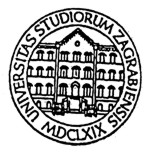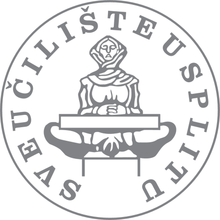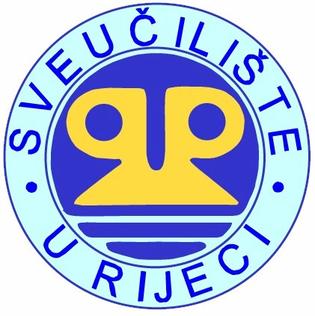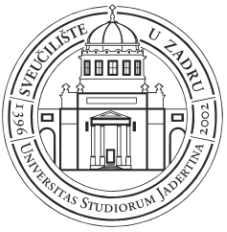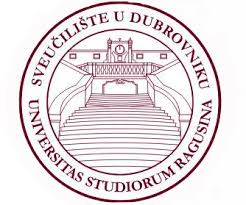Introduction
Zagreb
Rijeka
Conclusion
Acknowledgements
Introduction
Following the collapse of the former Yugoslavia, thousands of Croatians and Bosnians fled their homes in the hopes of finding refuge in the more peaceful areas of Croatia. In 1995-1996 SAMA (Student Association for Medical Aid) put together a project sending four students from McGill University to Croatia with the aim of contributing to the slow process of rebuilding this war-torn country. This six week mission allowed us to participate in local humanitarian efforts already underway in regions less affected by the war, but flooded with refugees. Our first three weeks were spent in Zagreb, Croatian capital, and our last three in Rijeka.
Our project was designed in order to allow us to work in conjunction with local humanitarian organizations, as well as to learn about the Croatian medical system. Our daily contact with Croatian students also allowed us to live and experience the Croatian culture, as well as understand the many emotions they have felt during these times of war. The entire project was greatly facilitated through the coordinated efforts of both the medical faculties of Zagreb and Rijeka, who not only arranged our work with various organizations, but also provided us with room and board. It is these aspects which we will discuss in the hopes of describing our humanitarian experience in Croatia.
Zagreb
The support of the Medical Student Association of Zagreb University was essential in the initial organization of our project. First, we worked at a refugee camp called Brezovica, founded by the Christian organization Caritas. Brezovica houses children who have been mutilated or abandoned during the war. It is a beautiful and well equipped complex funded mostly by generous German donations. Unfortunately, inside this almost luxurious building, one finds children who have suffered traumas beyond the imaginable.
The complex itself is subdivided into eight different homes in which the two hundred children of Brezovica live. Each home is run by two women who are faced with the difficult task of looking after the daily needs of the children. The numerous house-duties alone were enough to occupy most of their time and energy during the day. Unfortunately, this left many of the social and emotional needs of the children unfulfilled, and this is where our help was directed. Most of our days were spent organizing various activities. Our main goals were to exploit the many facilities of Brezovica, teach the children new games which they could continue to play after our departure, and most importantly, bring them love and compassion. Our skills as lifeguards allowed us to use the pool in order to familiarize certain disabled children with water, help certain kids overcome their fear of water, and teach others how to swim. Other severely disabled children needed constant supervision to go outdoors. Our undivided attention to the children was much appreciated by the women in charge of the houses, and more importantly by the children themselves, who constantly rewarded us with the priceless gift of a smile.
Rijeka
Our last three weeks were organized by the Student Association of Rijeka University whose hard work and careful planning ensured a diversified program for us. This enabled us to see and do various activities related to humanitarian aid and medical care.
Our first week was devoted to visiting the regional governmental centre for refugees in Rijeka, as well as the offices of the Red Cross and the United Nations. These three organizations were responsible for collecting and distributing to the refugees the various resources available. These visits allowed us to see first hand the needs of the refugees, as well as how these needs were being met. Efforts by these organizations to help individuals return to their homes were clearly on their way, however over 250,000 refugees still remained in Croatia.
During our last two weeks, we helped different organizations with humanitarian aid. We spent three days at a psychiatric hospital in Kraljevica. Here we helped with the care of severely mentally disabled patients who were originally from a hospital in Sibenik that had been bombed by the Serbs during the war. Our role here, similar to that in Zagreb, was one of emotional and social support. Following this, we went to the island of Krk where we helped the Red Cross with various activities. Our first task involved helping in the distribution of food and other resources to refugees. On another day, we helped in the unloading of a huge truck carrying clothes, blankets, big bags of flour, all of which were donated by the Austrians. Our work on this island with the Red Cross was definitely one of the most rewarding as our help was extremely appreciated by the various other volunteers.
Finally, the students in Rijeka organized a few visits to acquaint us with their various medical facilities. These included visits to a blood clinic, thalassotherapy hospital, and the laboratories of a pharmaceutical company. We also visited a newly built hospital in Zagreb. Overall, we were extremely impressed with most of these institutions which often demonstrated the use of new equipment and state of the art technology. However, it also became apparent to us, through our visit to the blood clinic located in a popular hospital of Rijeka, that the institutions responsible for the support of the Croatian people in their daily medical needs are often overcrowded, lacking in space, resources, and cleanliness. This is probably due to the difficult economic situation the country must face in recovering from the war. We might thus hope that these realities will change for the best as the country reconstructs itself.
Conclusion
It is thus with much hope of continued peace between the countries of the former Yugoslavia that we conclude our report. These people, whether Croatian, Serbian, or Bosnian desperately want to rebuild their lives and their countries. They need our support. Although our stay in Croatia was a short one, we are convinced we have shared the best of ourselves with the people we met and have had a positive impact on them. The ties of friendship and hope which we have established are of tremendous importance to us. In order to ensure continuity to our project, we have spoken and presented our experiences to our community. As a result, four of our colleagues have decided to maintain our initiative and will be returning to Croatia in the summer of 1997. As well, we are preparing for the arrival of four Croatian students who will be coming to Canada in the hopes of seeing a reality different from theirs.
Acknowledgements
It is with a deep sense of gratitude and friendship that we would like to thank Dr. Ante L. Padjen, Professor of Pharmacology at McGill University, for his constant support, and for having believed in us from the beginning; Kruno, our Croatian teacher, for his patience and his availability throughout the entire year; Peter and Tomislav, for organizing our memorable six weeks in Zagreb and Rijeka; and our families and friends both in Canada and Croatia for their continued love and support throughout the realization of the project. |
